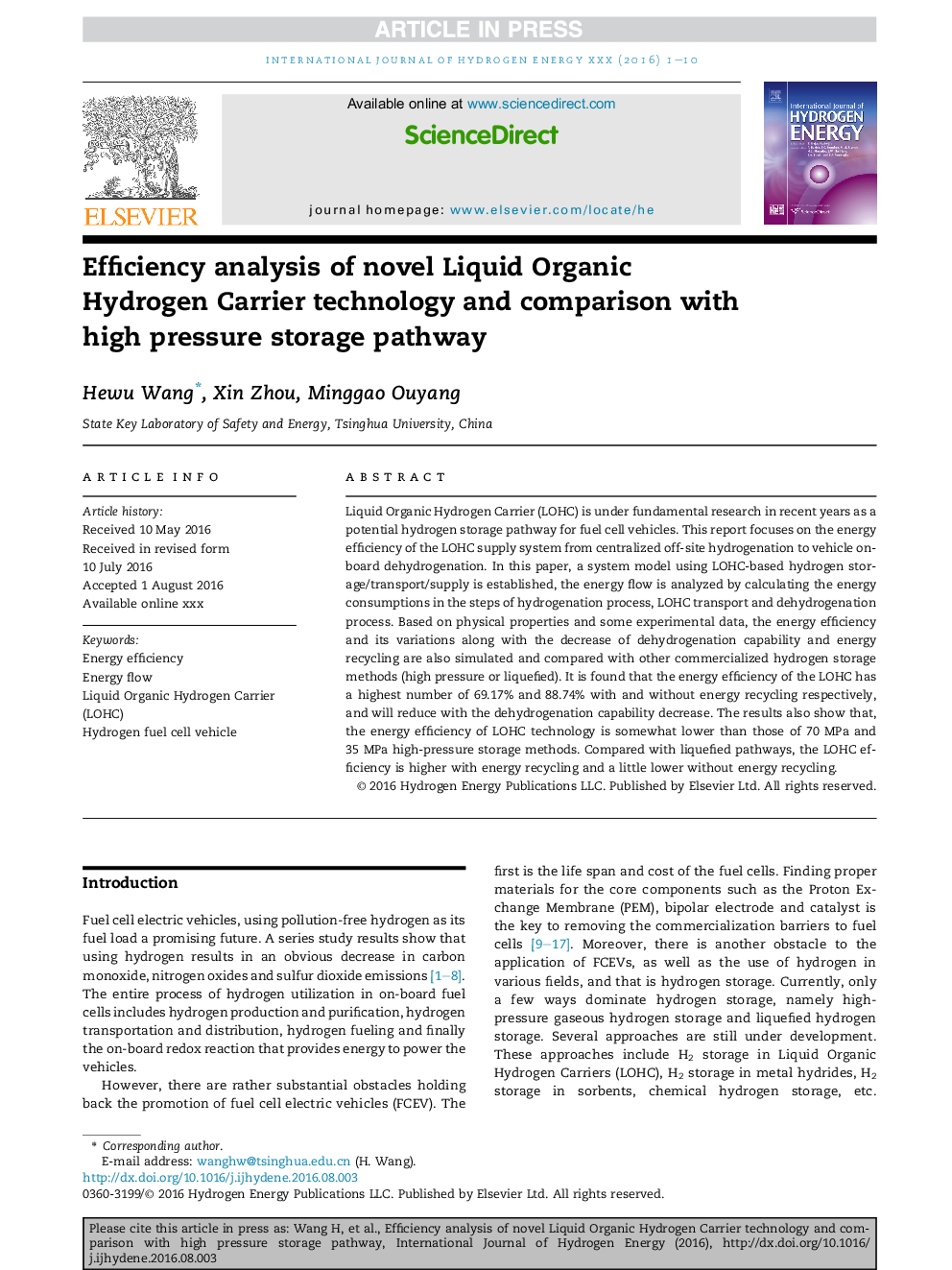| Article ID | Journal | Published Year | Pages | File Type |
|---|---|---|---|---|
| 5147552 | International Journal of Hydrogen Energy | 2016 | 10 Pages |
Abstract
Liquid Organic Hydrogen Carrier (LOHC) is under fundamental research in recent years as a potential hydrogen storage pathway for fuel cell vehicles. This report focuses on the energy efficiency of the LOHC supply system from centralized off-site hydrogenation to vehicle on-board dehydrogenation. In this paper, a system model using LOHC-based hydrogen storage/transport/supply is established, the energy flow is analyzed by calculating the energy consumptions in the steps of hydrogenation process, LOHC transport and dehydrogenation process. Based on physical properties and some experimental data, the energy efficiency and its variations along with the decrease of dehydrogenation capability and energy recycling are also simulated and compared with other commercialized hydrogen storage methods (high pressure or liquefied). It is found that the energy efficiency of the LOHC has a highest number of 69.17% and 88.74% with and without energy recycling respectively, and will reduce with the dehydrogenation capability decrease. The results also show that, the energy efficiency of LOHC technology is somewhat lower than those of 70Â MPa and 35Â MPa high-pressure storage methods. Compared with liquefied pathways, the LOHC efficiency is higher with energy recycling and a little lower without energy recycling.
Keywords
Related Topics
Physical Sciences and Engineering
Chemistry
Electrochemistry
Authors
Hewu Wang, Xin Zhou, Minggao Ouyang,
